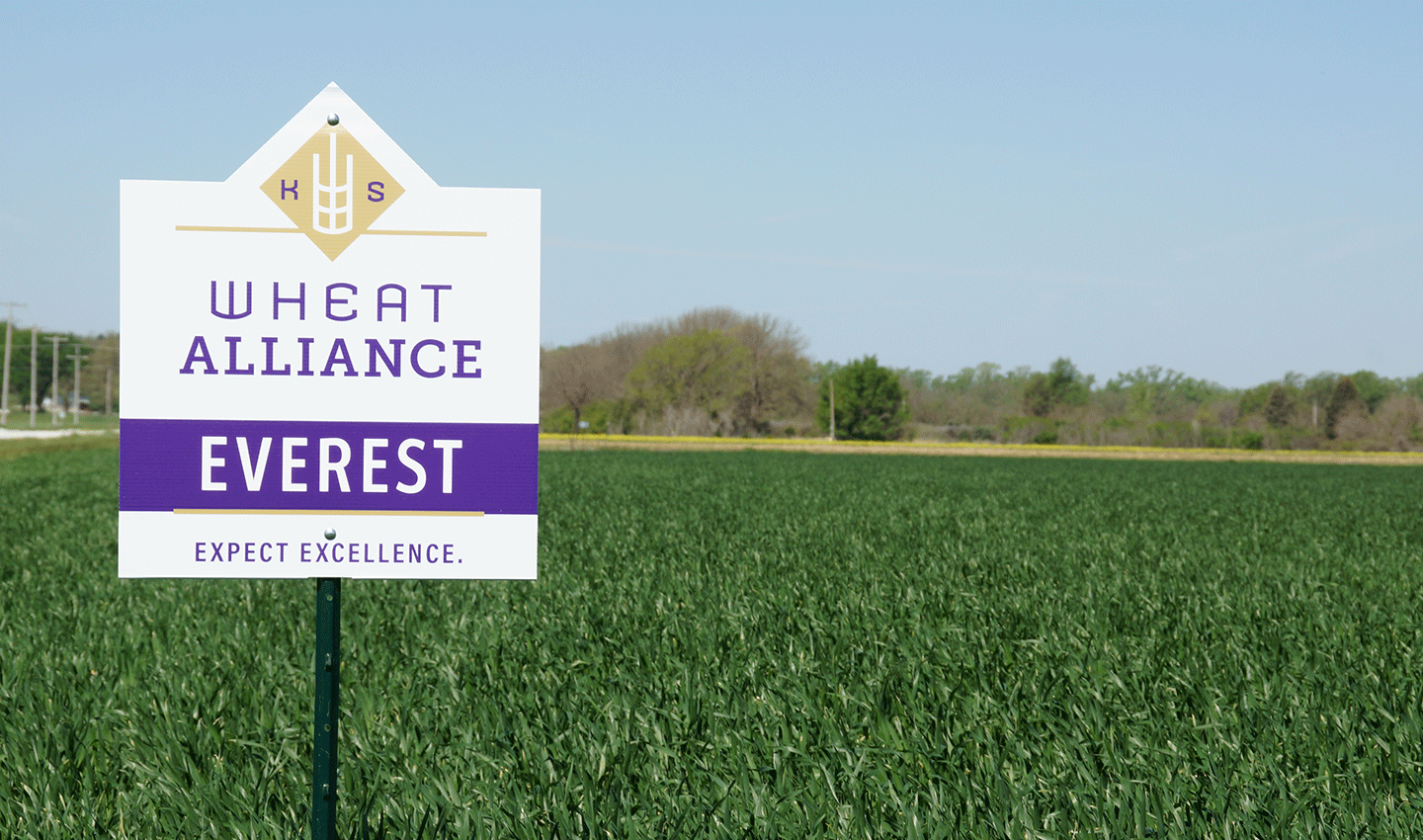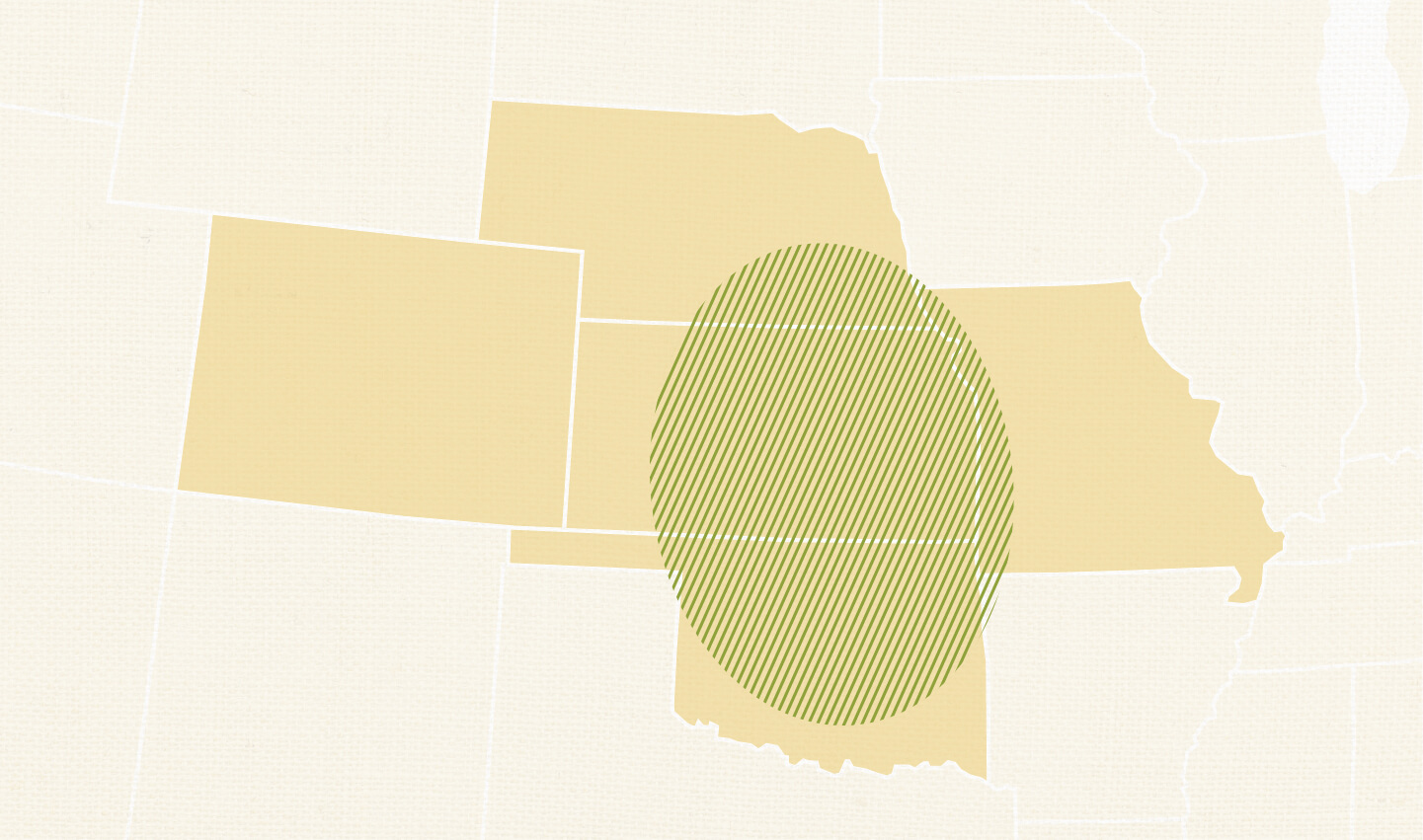Pioneer experimental, Betty (KS970093-8-9-#1)
PVP with Title V
2009
Kansas State University
Primary: Grain only; Grain plus limited grazing

This variety developed by K-State is the benchmark for tolerance to FHB (an Intermediate rating is as good as it gets for scab tolerance). Everest remains one of the “go-to” varieties for eastern and central Kansas—the most-planted variety in the state for several years. Everest will need to be sprayed for either stripe rust or tan spot if those diseases are a problem. In the absence of those leaf diseases, it has very few other weaknesses where adapted. Everest is not a high-tillering variety. It needs to get established well and tiller in the fall to make top yields. It cannot easily make up for a poor start by tillering a lot in the spring. In some years, however, its lower tillering tendency can help it survive years when stress occurs late.
Everest seems to tolerate mid-season drought stress well but does not tolerate early-season drought in the fall. It will not get too lush when conditions are good early, so it stays within itself when conditions turn hot and dry late in the season. It fills well under stress and has very good yield potential when managed.
It is more resistant to barley yellow dwarf than most varieties but will become infected under moderate to heavy pressure.

| Everest | |
| Barley Yellow Dwarf | Moderately Resistant |
| Hessian Fly | Intermediate |
| Leaf Rust | Moderately resistant |
| Stem Rust | Moderately resistant |
| Stripe Rust | Susceptible |
| Powdery Mildew | Moderately resistant |
| Scab | Moderately Resistant |
| Septoria Leaf Blotch | Intermediate |
| Soilborne Mosaic | Resistant |
| Tan Spot | Susceptible |
| Wheat Streak Mosaic | Moderately susceptible |
| Everest | |
| Acid soil tolerance | Tolerant |
| Coleoptile length | Medium |
| Drought tolerance | Average |
| Early Spring greenup | Intermediate |
| Fall ground cover capability | Good |
| Grazing potential in Fall | Average |
| Height | Medium |
| Maturity (heading date) | Early |
| Protein | Average |
| Baking Quality | Less Desirable |
| Milling Quality | Exceptional |
| Seed Size | Large |
| Shattering reputation | Good |
| Straw strength | Very Good |
| Test weight | Good |
| Tillering | Intermediate |
| Winterhardiness | Very Good |
| Overall yield record where adapted | Very Good |

Unauthorized Propagation Prohibited – to Be Sold by Variety name Only As a Class of Certified Seed – U.S. Protected Variety – 1994 PVPA.